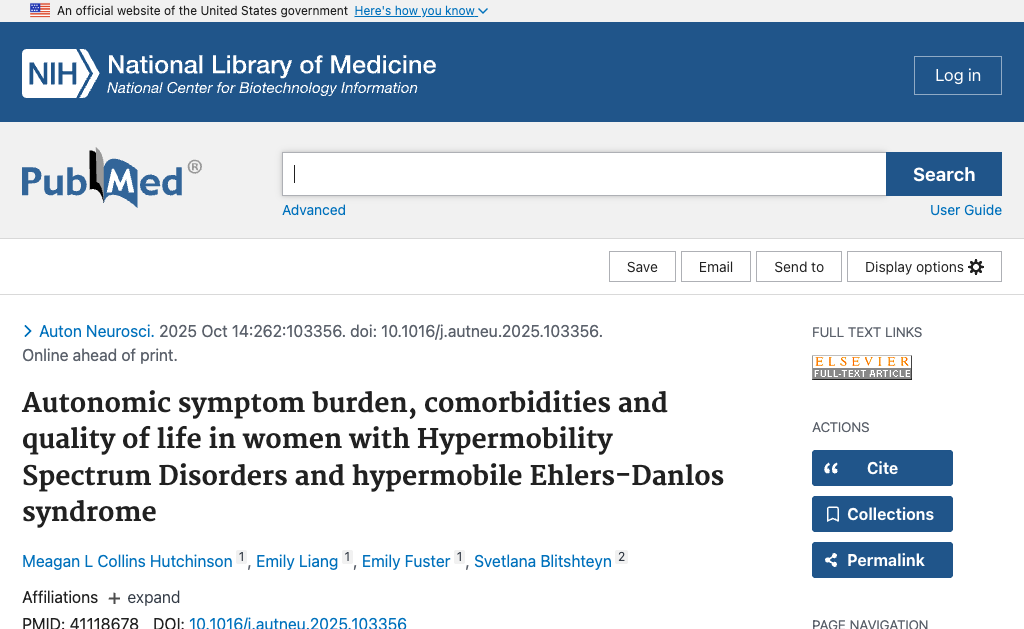Autonomic symptom burden, comorbidities and quality of life in women with Hypermobility Spectrum Disorders and hypermobile Ehlers-Danlos syndrome.
This study surveyed 84 adult women with physician-diagnosed hypermobile Ehlers-Danlos syndrome (hEDS) or Hypermobility Spectrum Disorders (HSD) using validated questionnaires for autonomic symptoms (COMPASS-31), quality of life (SF-36), and depression (BDI-II). Autonomic symptom burden was very high: average COMPASS-31 scores indicated severe autonomic dysfunction, worse than levels previously reported in multiple sclerosis, diabetic neuropathy, scleroderma, and psoriatic arthritis. Over half had a POTS diagnosis, about one-third had MCAS, over half had migraine, a quarter had ME/CFS, and nearly all reported chronic pain; importantly, 25% had the combined triad of HSD/hEDS + POTS + MCAS. Overall quality of life was markedly impaired and, based on SF-36 scores, was poorer than in published cohorts with POTS alone, multiple sclerosis, rheumatoid arthritis, or lupus. For patients and clinicians, these findings highlight that hypermobility conditions are frequently accompanied by significant dysautonomia, pain, fatigue, and overlapping conditions like POTS, MCAS, migraine, and ME/CFS, and that this multimorbidity is associated with substantial day-to-day disability—underscoring the need for active screening for autonomic symptoms and comorbidities and for comprehensive, multidisciplinary management rather than focusing on joints alone.
